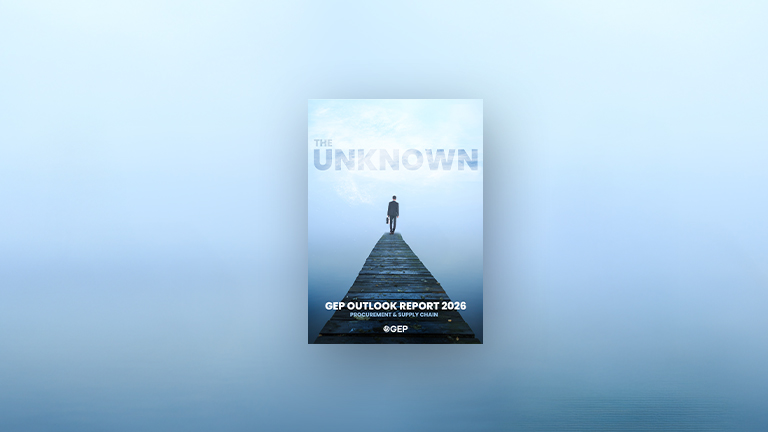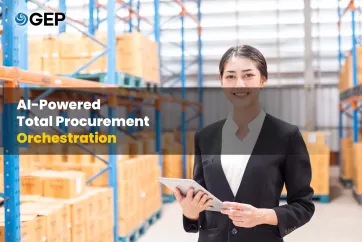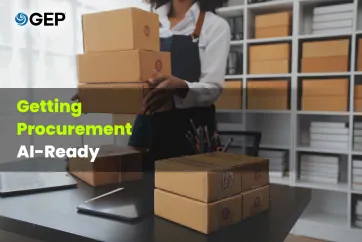
Can AI Agents Handle Contract Compliance Audits?
- Agents monitor contracts continuously, turning reactive audits into real-time governance.
- Every contract becomes visible and verifiable, connecting terms directly with performance and payment data.
- By removing manual effort and guesswork, compliance becomes a source of insight and strategy, not just oversight.
November 13, 2025 | Procurement Strategy 6 minutes read
You know how every business runs on contracts: thousands of them, quietly sitting behind everything from supplier deals to service agreements. Each one is filled with promises: delivery dates, pricing terms, compliance clauses, sustainability goals. But once those contracts are signed, they often vanish from daily attention.
Most companies only look at them again when something goes wrong. A missed discount; a compliance penalty; a supplier that’s not living up to what they agreed. The problem isn’t that teams don’t care; it’s that no one can manually track all of that in real time.
This is where AI agent-driven contract compliance audits come in. Instead of relying on periodic manual reviews, these systems use intelligent agents to continuously monitor and validate contracts against what’s actually happening in the business. It’s like having a team of digital auditors who never sleep; quietly checking every term, every clause, every transaction, and telling you when something drifts off course.
And here’s the real shift: compliance stops being about catching mistakes after the fact. It becomes something that’s happening continuously; almost invisibly; in the background of your operations.
What Are AI Agent-Driven Contract Compliance Audits?
At a basic level, these audits are the next generation of compliance oversight; but with intelligence built in. Traditional audits look backward; AI agent-driven audits look around you, all the time.
An AI agent is like a smart assistant that doesn’t just read data but understands it. Using natural language processing, it can interpret complex legal clauses, pull out key details like dates, risk terms, and obligations, and then connect that understanding to what’s happening across procurement, finance, and operations systems.
If a supplier misses a delivery window or an invoice doesn’t match contract pricing, the agent spots it instantly. If a contract clause violates a new compliance regulation, it flags that too. These agents don’t need reminders or checklists. They know what to look for because they’re built to learn the logic of your business.
It’s a bit like giving every contract its own conscience; one that quietly checks if everyone’s keeping their promises.
Future-Proof Your Compliance
Empower your team with agentic AI, drive efficiency and transparency.
Core Capabilities of AI Agents in Contract Compliance
What makes AI agents powerful isn’t just automation; it’s comprehension. They can read a contract the way a human would; understanding not just the words, but the intent behind them.
They use natural language understanding to interpret commitments like “delivery within 20 days of purchase order confirmation” or “annual rebate if volume exceeds threshold.” Once they know what those mean, they link them to live data; invoices, supplier performance metrics, quality reports; and track whether the obligations are being met.
Over time, they build context. They learn which suppliers are consistent, which clauses tend to cause confusion, and where non-compliance usually sneaks in. Instead of generic alerts, you get insights: “This supplier’s performance is slipping compared to last quarter,” or “This contract’s payment terms conflict with new regulatory standards.”
They don’t just detect; they reason, anticipate, and explain.
What Are the Challenges Enterprises Face in Contract Compliance Audits
The traditional approach to compliance is patchwork. Legal teams handle one part; procurement manages another; finance looks at payments; and rarely do these systems talk to each other.
That disconnect is where risk hides. Contracts live in different repositories, written in different formats, often governed by different regional laws and regulations. By the time anyone cross-references them with actual spend or delivery data, weeks have passed.
Manual audits are also slow and subjective. Humans can only review so many clauses; and even small errors in interpretation can create costly mistakes. The sheer scale of modern supply chains makes it almost impossible to monitor compliance across thousands of contracts in real time.
AI agents solve this by connecting the dots. They pull everything: contracts, spend, performance data, and external regulatory updates; into one intelligent flow; continuously auditing so humans don’t have to play catch-up later.
The Key Benefits of AI Agent-Driven Contract Compliance Audits
The immediate benefit is clarity. For once, you can actually see what’s happening across your contract portfolio; not last quarter, not last month, but right now. Every contract becomes a transparent, living part of the business.
Accuracy improves too. AI agents don’t miss details, don’t get tired, and don’t rely on assumptions. They interpret every clause consistently, ensuring that your compliance standards are applied the same way across regions, departments, and suppliers.
Then comes speed. Instead of waiting for annual reviews, you get real-time alerts. Non-compliance is caught the moment it starts; not after it causes damage.
And that’s where the real transformation lies. When compliance moves from reactive policing to proactive intelligence, it becomes a source of confidence, not anxiety.
Eager to learn more on Agentic AI?
Get The Agentic AI Playbook to see how leaders are moving from automation to autonomy.
Uses of AI Agents in Contract Compliance Audits
'The uses go far beyond basic auditing. AI agents can operate at every stage of the contract lifecycle.
When a contract is being drafted, they can check that language aligns with company policies and existing compliance regulations. Once it’s active, they can track delivery schedules, service levels, pricing terms, and ESG commitments; automatically matching them with actual performance and payments.
In post-award audits, they help legal teams verify that every obligation was fulfilled and identify patterns of recurring compliance issues. For regulated industries, they continuously check for new legal requirements and flag which contracts might be affected.
The big advantage here is consistency. Instead of waiting for human auditors to check once a year, compliance monitoring happens 24/7; quietly, precisely, and without bias.
How to Implement AI Agent-Driven Compliance Audits Successfully
The hardest part isn’t getting AI; it’s preparing the environment for it. Contracts need to be digitized and centralized so the agents can access and interpret them. Fragmented files across systems or regions make that impossible.
Once the data is in place, start with focus. Choose one or two compliance areas that have high impact; maybe pricing accuracy or service-level enforcement. Let the AI learn from those, refine its understanding, and expand gradually.
Integration is the real unlock. When the AI can connect to procurement, finance, and supplier management platforms, it gains the context it needs to make smart decisions. Over time, it doesn’t just flag problems; it helps prevent them.
And of course, people matter. Legal and procurement teams need to trust the system’s recommendations. Transparency is key. The AI should explain its reasoning: what clause it checked, what data it compared, and why it raised a flag. Once that understanding clicks, adoption becomes natural.
Free Teams for Strategic Work
The future of contract compliance audits isn’t manual; it’s intelligent.
AI agent-driven compliance doesn’t just automate checks; it redefines what it means to govern contracts. It gives every agreement a living, digital presence that ensures promises are being kept and risks are being managed continuously.
This shift frees teams from the tedium of chasing down details and lets them focus on strategy, strengthening supplier relationships, improving negotiations, and protecting value.
It’s compliance that moves at the speed of business; not slower; not later; right now.
Explore Contract Compliance Tracking and Reporting Software to see how automation and AI can simplify governance while strengthening compliance visibility.
FAQ
The biggest gains come from time and accuracy. By reducing manual audit hours, eliminating missed obligations, and preventing compliance penalties, enterprises often see both immediate savings and long-term performance improvements.
AI agents use natural language processing to interpret contracts across multiple languages and legal frameworks. They can adjust for regional nuances in laws and regulations, ensuring consistency and accuracy even in globally distributed operations.



